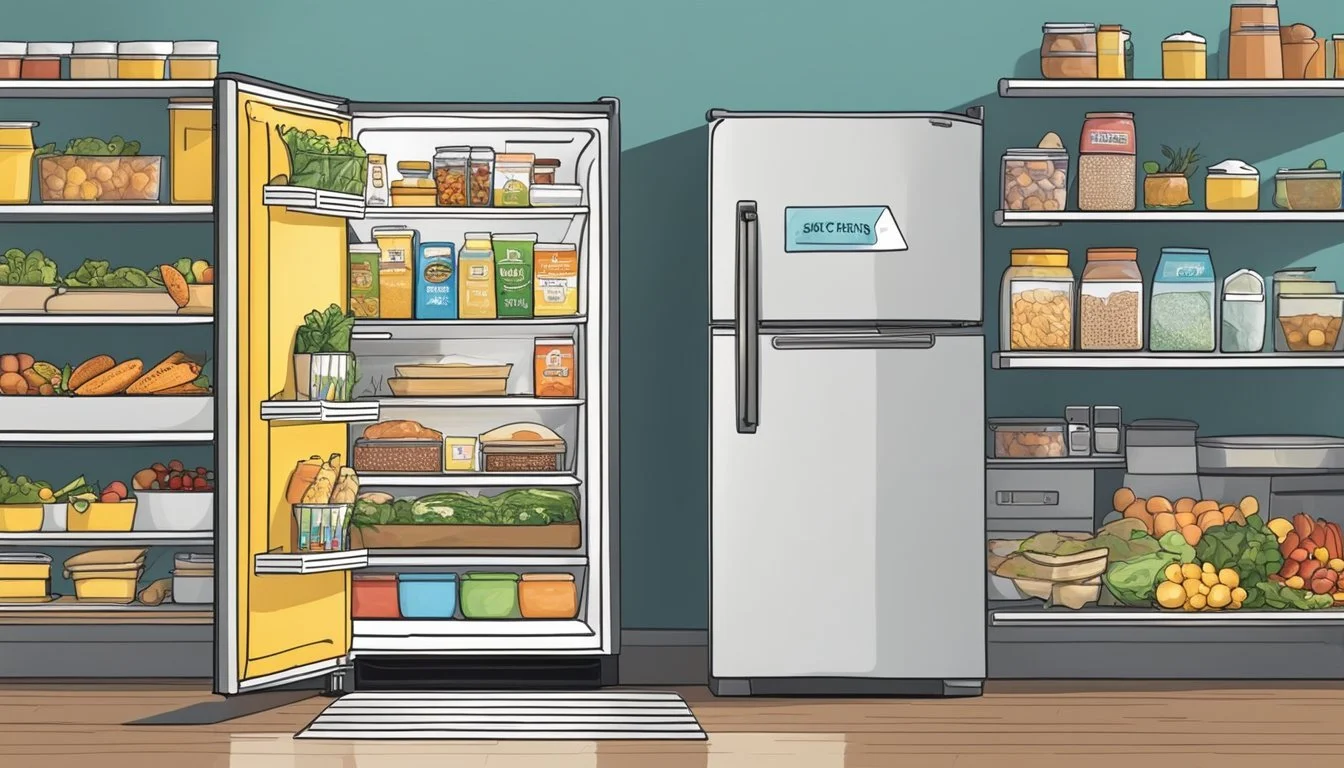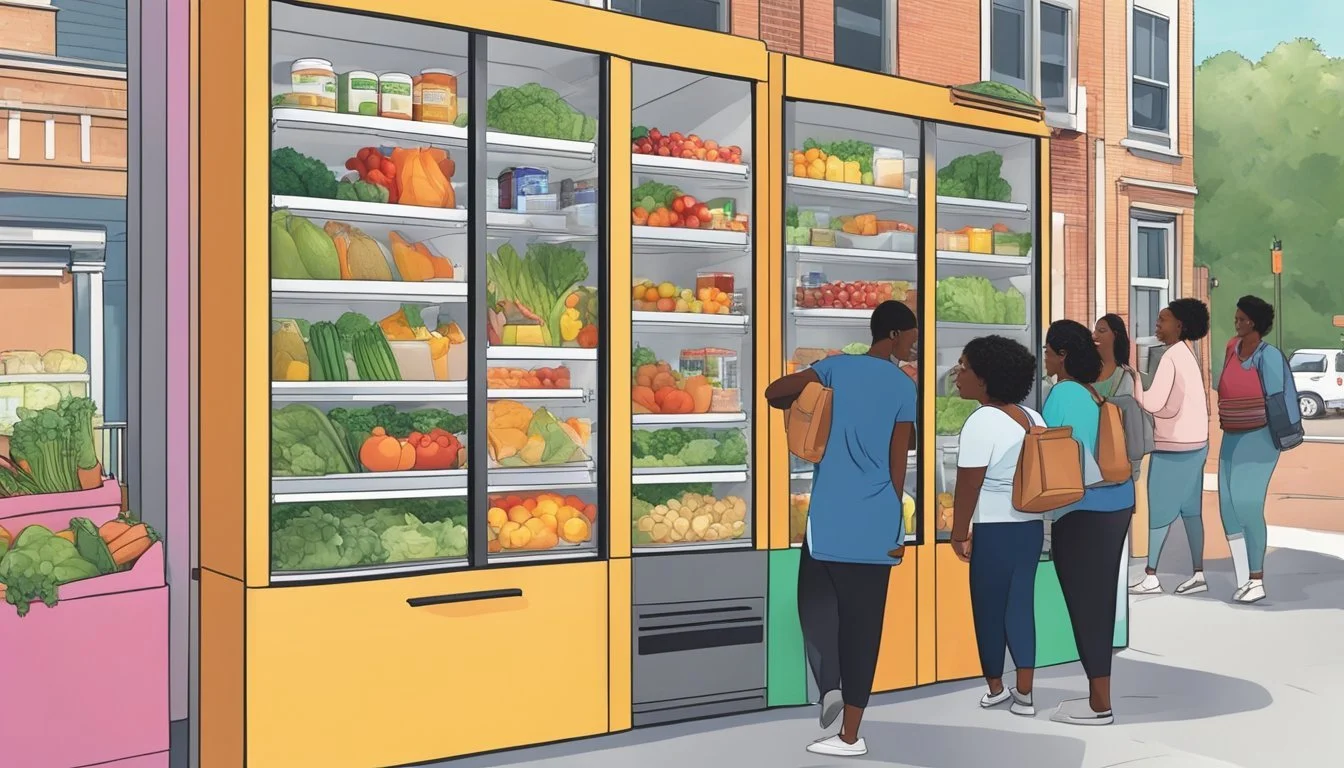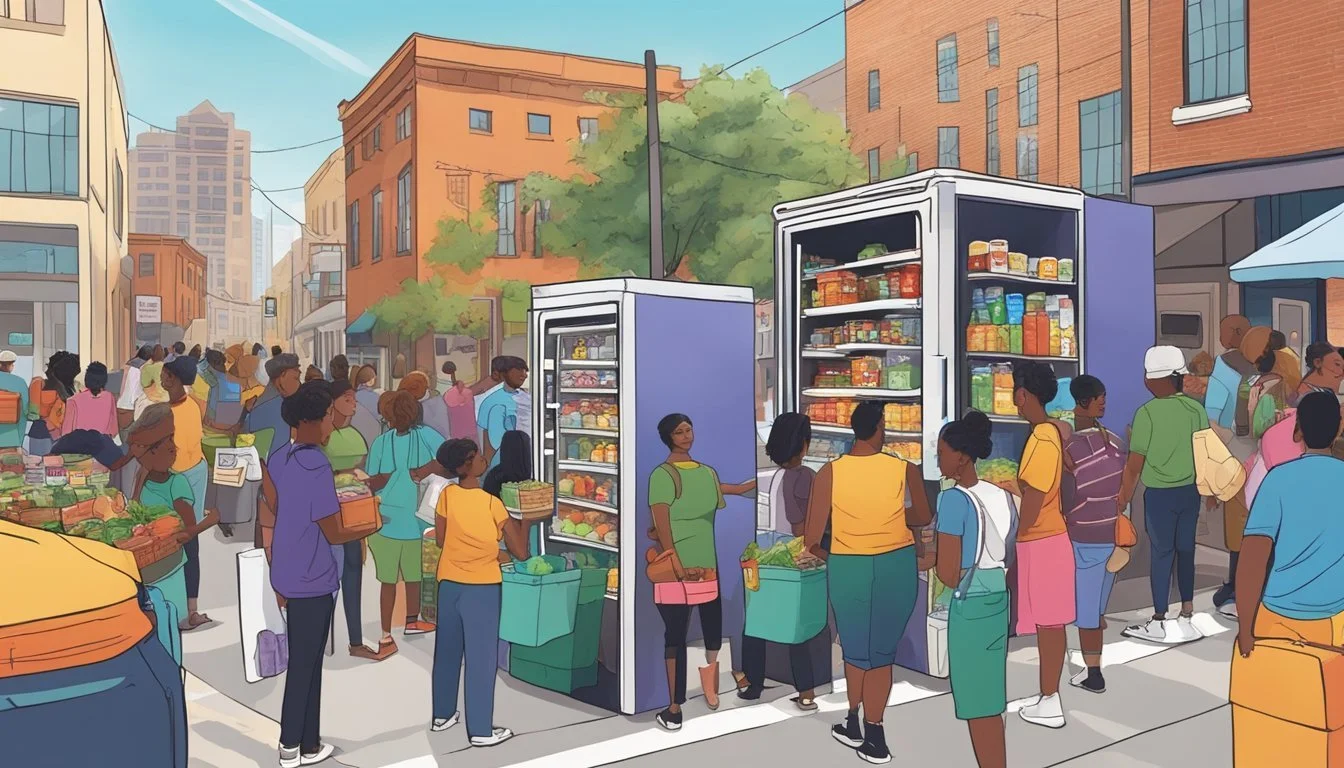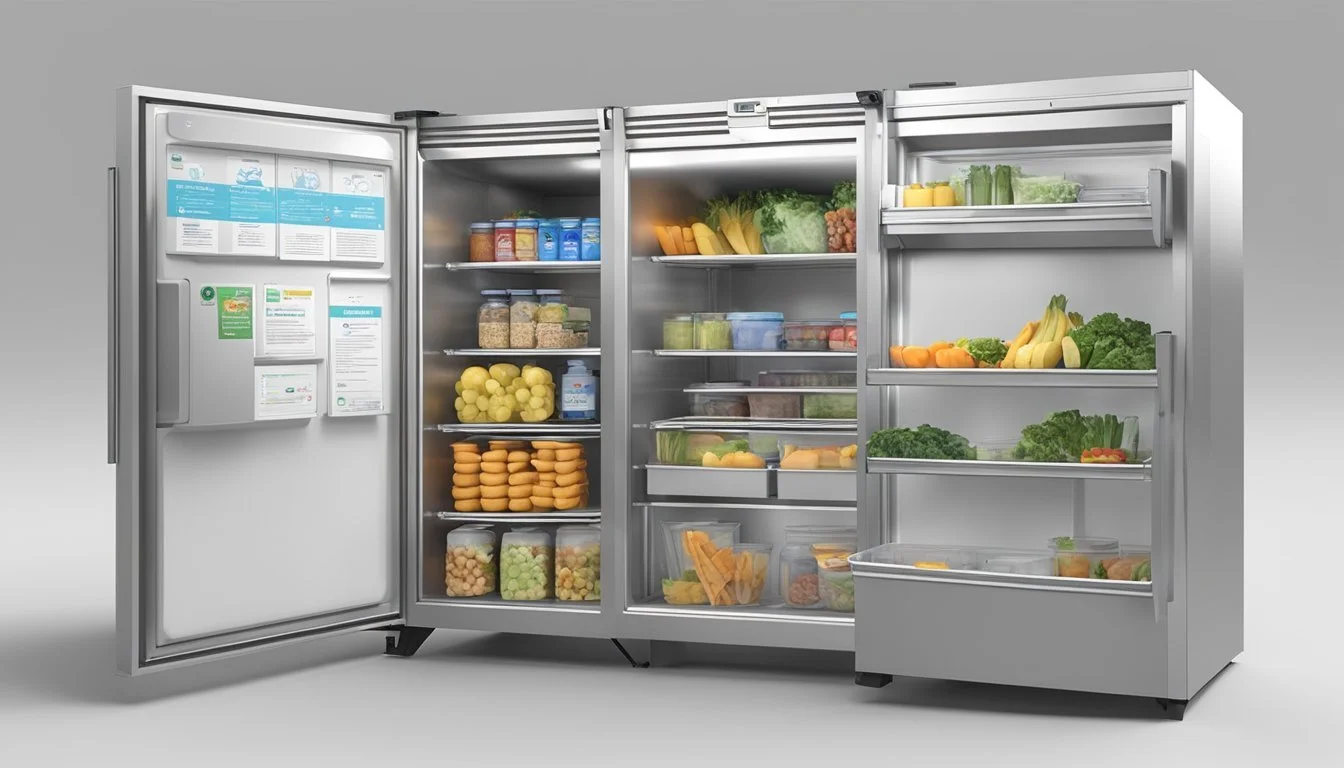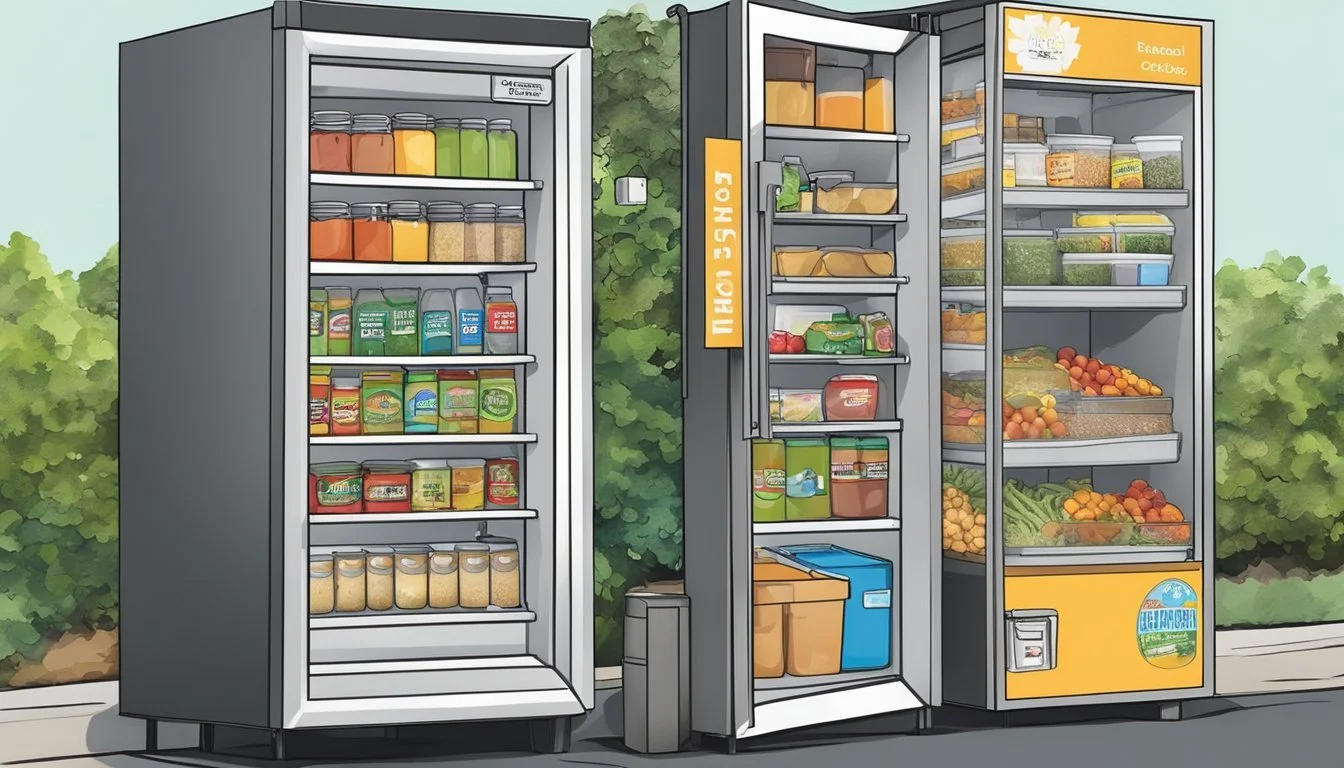Atlanta, GA Community Fridge
Tackling Food Insecurity Together
In the vibrant city of Atlanta, a grassroots initiative is taking a stand against food insecurity through the innovative concept of community fridges. These refrigerators, strategically positioned throughout the city, offer free, high-quality produce and non-perishable foods to anyone in need. The concept, birthed from the principles of mutual aid and food justice, operates on the belief that access to fresh, nutritious food is a right, not a privilege. Spearheaded by local organizations and individuals committed to addressing the immediate needs of their neighbors, this movement is gaining traction, showcasing the power of community-led solutions in the face of urban challenges.
These community fridges don't just serve as points for food distribution; they are also a means of social solidarity and environmental consciousness, reducing food waste by repurposing excess edible goods that would otherwise be discarded. Anchored by partnerships with local businesses and organizations, Atlanta's community fridges offer a reliable resource for residents, ensuring that the essentials are available to everyone, fostering a sense of togetherness and empowerment among the community.
In the midst of rapid urban development and gentrification, Atlanta's community fridge network is a testament to the city's resolve to nurture its citizens and fortify its neighborhoods. These fridges offer more than just sustenance; they are part of a larger narrative of community resilience and inclusive support systems. As the initiative continues to grow, with more fridges being installed and maintained by volunteers, it represents a beacon of hope and a practical model for food justice that could inspire similar actions in cities across the nation.
What Is a Community Fridge?
Community Fridges are essentially public refrigerators that aim to combat food insecurity through a mutual aid model. They operate on the principle of allowing anyone to place food inside or take it out, with an emphasis on accessibility and minimizing food waste.
History of Community Fridges
The concept of Community Fridges is not new; they have been around in various forms for many years, providing free access to food for those in need. Organizations like Free99Fridge have become instrumental in the proliferation of these fridges across communities. In Atlanta, GA, such initiatives have taken form with the support of local businesses and individuals who collectively strive to ensure that fresh produce and other food items are available to everyone, countering both hunger and excess food disposal in an urban setting.
Locations and Accessibility
Atlanta's Community Fridge initiative ensures easy access to fresh food through strategically placed refrigerators. These fridges are a part of a mutual aid project, allowing anyone to take what they need and give what they can.
West End
In the West End area, community fridges are a sight of community solidarity. One notable location is at Best End Brewing, where two refrigerators are conveniently available for public use.
North Decatur Presbyterian Church
North Decatur Presbyterian Church serves as another key location. It houses a community fridge that emphasizes a shared responsibility and resources within the Decatur area of metro Atlanta.
East Atlanta
Community fridges in the East Atlanta area provide a practical solution to food insecurity. These locations give residents the means to both receive and offer food in an easily accessible manner.
Clarkston
In Clarkston, known for its diverse population, community fridges are placed to cater to the needs of all residents. Accessibility and inclusivity are pertinent, as these fridges serve a vital role in community support.
Supporting Atlanta's Community Fridge
Atlanta's community fridge initiatives thrive through the commitment of volunteers and the collaboration with local businesses. These efforts aim to address food insecurity, reduce waste, and foster a spirit of sharing within the community.
How to Volunteer
Individuals looking to contribute their time can engage with the community fridge by stocking and cleaning the fridges. Volunteers ensure the fridges are filled with fresh, healthy food and are maintained in a clean state for people to access food with dignity. To volunteer, one can directly connect with community fridge organizations to learn about the specifics of their process.
Tasks for Volunteers:
Stock fridges with food donations
Maintain cleanliness around the fridge areas
Organize food to maximize space and accessibility
Local Businesses and Partnerships
Partnerships with local businesses play a crucial role in the success of community fridges. By becoming a partner, a local business can support these nonprofit initiatives by providing surplus food, funding, or even hosting a fridge site.
Ways Businesses Can Partner:
Donate surplus food to prevent waste
Financial contributions to support operational costs
Host a community fridge at their business location
Local non-profits and charities often manage community fridges, relying on these partnerships to sustain and expand their reach within diverse neighborhoods.
Donation Guide
Contributing to Atlanta's community fridges is an essential support to food justice, involving high quality fresh produce and non-perishables for those in need.
What to Donate
Essentials to contribute:
Fresh Produce: Fruits and vegetables, prioritizing quality and freshness.
Non-Perishable Food: Items such as rice, pasta, canned goods, and dry beans that are vital for long-term storage and ease of distribution.
Note: All donated items should be unopened and within their expiration dates.
How to Donate Food
Guidelines for contribution:
Choose your items based on the essential foods listed above.
Food Preparation: If donating prepared meals, ensure they are packaged safely and labeled with all ingredients alongside a "prepared on" or "enjoy by" date.
Locate your nearest Atlanta community fridge.
Follow the donation guidelines posted at the fridge for proper placement and handling.
Remember, each contribution supports community nourishment and food accessibility.
Impact on Food Justice
The establishment of community fridges in Atlanta is a pivotal step toward enhancing food justice. This initiative is addressing the urgent issues of racial inequity and food scarcity while simultaneously mitigating food waste.
Combating Racial Injustice
Community fridges in Atlanta serve as a substantial tool in the fight against racial injustice. They provide accessible and free food sources, predominantly in neighborhoods disproportionately affected by food insecurity due to systemic bias. These refrigerators are often situated in areas with higher populations of marginalized communities, ensuring that those who face racial disparities have consistent access to nutritious food.
Reducing Food Waste
The fridges also play a critical role in reducing food waste—a significant environmental and economic concern. By acting as a collection and distribution point, they enable the repurposing of surplus food that might otherwise be discarded. As a result, the community fridges help lessen the impact on landfills while providing for those in need. This dual benefit turns excess into access, supporting both environmental sustainability and community nourishment.
Community Involvement and Initiatives
Atlanta's network of community fridges exemplifies active collaboration and grassroots mobilization, addressing food insecurity and reducing waste through sustained community and activist-led initiatives.
Mutual Aid Networks
Mutual Aid Networks are a key aspect of sustaining community fridges across Atlanta. These networks operate on the principle that community members support one another, ensuring everyone has access to fresh and healthy food. The Free99Fridge project is a prominent example of Mutual Aid Initiative in action. It not only provides food to those in need but also encourages people to connect and support their local Community.
Objectives of Mutual Aid Networks:
Eliminate food waste
Provide access to nutritious food
Strengthen community bonds
Entrepreneur and Activist Efforts
Entrepreneurs and activists in Atlanta have played a pivotal role in the success of community fridges. By establishing the community fridge initiative, they act as Solution-Oriented Collectives focused on practical ways to address societal issues. Latisha Springer is an example of an Activist and entrepreneur who launched Free99Fridge, showcasing how individual initiative can blossom into an impactful Grassroots Organization.
Activist Contributions:
Initiating community fridge projects
Engaging with local businesses for placement and maintenance
Organizing volunteers and spreading awareness
By working collaboratively, these mutual aid networks and entrepreneurial activists ensure essential resources are distributed fairly within the city, making a tangible difference in the lives of many Atlantans.
Partnerships and Collaborations
The success of the community fridge initiatives in Atlanta, GA is largely attributable to the strength of their partnerships and collaborations. These relationships extend across various sectors, from food suppliers to cultural institutions, which help to sustain and enhance the project's reach.
Restaurants and Growers
Many Atlanta restaurants and growers have allied with community fridge programs, bolstering the supply of nutritious options. These partners regularly contribute surplus fresh produce and meals, ensuring that those in need have access to high-quality food without cost. For instance, the collaboration between ATLFreeFridge and local eateries helps curb food waste while supporting food justice initiatives.
Partners:
Local Restaurants
Organic Growers
Art and Culture
The integration of art and culture is pivotal in community fridge movements, offering more than sustenance; they become beacons of community spirit. Local artists contribute their creativity, painting vibrant murals on the fridges that not only beautify the neighborhood but also raise awareness about food insecurity. These murals have become landmarks in themselves, symbolizing the community's solidarity and the fight against hunger.
Cultural Contributions:
Murals by Local Artists
Cultural Events_ADMIN_TOOL_TIP_DISABLE_FEEDBACK_FORM_ENTRY_
Safety Guidelines and Maintenance
The operation of community fridges in Atlanta, GA hinges on adherence to safety guidelines and diligent maintenance, ensuring food safety for all community members.
Handling Perishable Food
Community fridges must follow strict guidelines to handle perishable food, with particular attention to raw meat, to prevent foodborne illnesses.
Raw Meat: To avoid cross-contamination, raw meat should be stored on the lowest shelves in leak-proof containers and kept separate from prepared and ready-to-eat foods.
Temperature Checks: The refrigerator's temperature must be regularly monitored and maintained below 40°F to prevent bacterial growth.
Community Fridge Upkeep
A regular maintenance routine is essential for the fridge’s longevity and the safety of food donations. Those overseeing the fridges should:
Cleanliness: Ensure daily cleaning of the interior and exterior surfaces to maintain hygiene standards and food safety.
Donation Guidelines: Provide clear guidelines on fridge donations, prohibiting expired and open food items, while encouraging fresh produce and sealed packages.
Repairs: Address any technical issues promptly to prevent operational downtimes, preserving the integrity of the food within.
Community engagement is vital to sustaining these efforts, relying on the collective responsibility of Atlanta’s citizens to respect and uphold these measures.
Expansion and Future Goals
The Atlanta Community Fridge Project has made significant strides since its inception, with the primary focus on scaling up to meet the communities' growing needs. Through strategic partnerships and continued support, the project aims to bolster its nationwide presence and address food insecurity on a wider scale.
New Locations
Expansion Progress:
West End Family Life and Community Center - A recent addition to the project’s network, offering access to fresh food for the local community.
Emma's Place in College Park and Golden Bridges Food Pantry in Conyers - New sites that began operating as of early 2022.
Additional potential sites - The project is consistently exploring new locations within Atlanta as part of its ongoing commitment to community welfare and support.
The project's nonprofit status ensures that resources are pooled and mobilized efficiently to initiate and maintain these community fridges. The long-term plans of the Atlanta Community Fridge Project not only include geographical expansion but also the implementation of educational programs regarding healthy eating and food waste reduction.
Additional Resources
Community fridges in Atlanta offer a unique blend of grassroots aid and social connectivity. For those looking to engage or benefit from the community fridge projects, a slew of online resources and platforms are available.
Online Information and Social Media
Instagram acts as a visual hub for updates and community engagement related to Atlanta's community fridge project. People can follow accounts such as @ATLFreeFridge to see recent donations, volunteer efforts, and the fridge locations. For more structured discussions and planning, Slack channels are often established. They serve as a dedicated space for volunteers to coordinate and share updates.
Instagram: Real-time visual updates and engagements
Slack: Organized volunteer communication and coordination
Get Food and Support
For those in need of Free Food, Atlanta’s community fridges are a reliable resource. The fridges are stocked with fresh, healthy food accessible to everyone. Comprehensive details about where to find these fridges and how to utilize them can be found on their Website. The website lists fridge locations and provides a Frequently Asked Questions (FAQ) section to help newcomers understand how they can both benefit from and contribute to the project.
Website: Full list of fridge locations and FAQ
Get Food: Open access to community fridge contents for those in need

